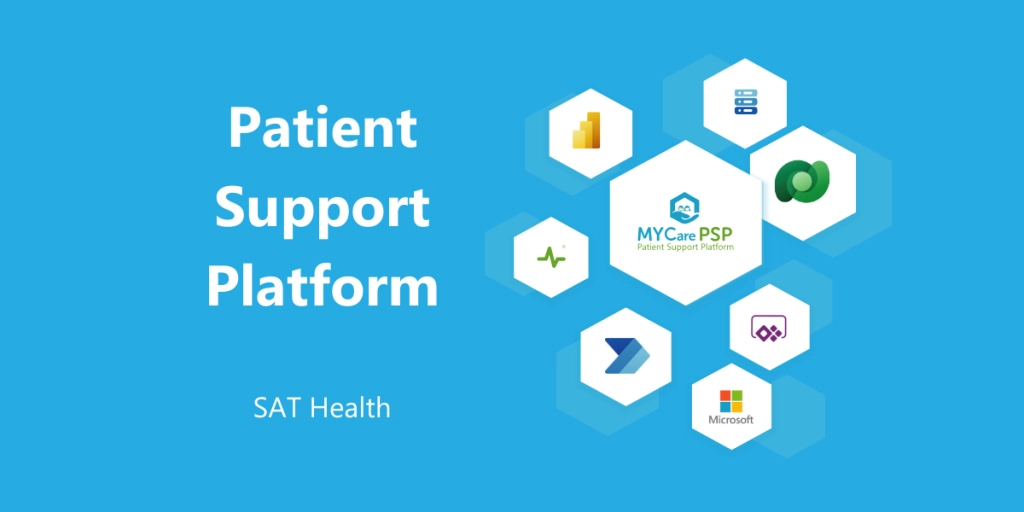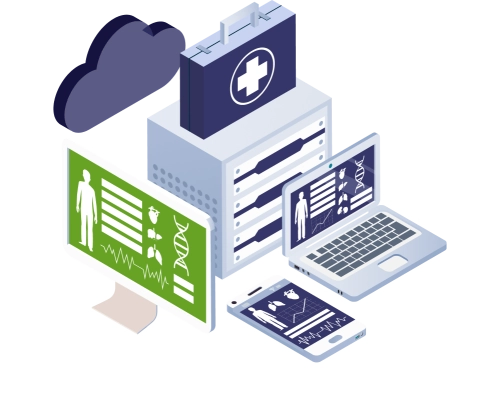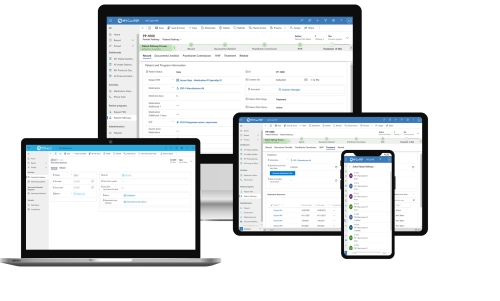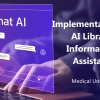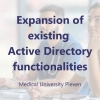Patient Support Platform - SAT Health
SAT Health is a digital healthcare service provider, specializing in the organization and execution of patient support programs (PSPs). PSPs are often delegated by pharmaceutical companies to contractors, such as SAT Health, which in turn have to adhere to a strict set of rules and procedures. Each pharma company has its own requirements for processing and analyzing data, and records are often unstructured.
SAT Health has always been a strong player in the digital healthcare market. But it wasn't until their PSP clients became the majority, that they realized the need for a robust IT solution to service them. Unhappy with their previous IT provider, SAT Health were looking for functionalities that could address the specifics of running a PSP. More importantly, development of these functionalities had to be quick, systematic and predictable.
SOLUTION
As we set out to develop a system that could facilitate the day-to-day management of PSPs, the first thing on our mind was to understand which PSP processes had to be digitalized, automated or streamlined. We also analyzed the CRM used by SAT Health before our involvement in order to understand its weaknesses and come up with better solutions. Our team worked closely with SAT Health on all levels - operations, management and strategy. This allowed us to gauge the needs and expectations of our client. First, the interface used by the assistants had to be simple and intuitive. Then, the analytical capabilities employed by management had to provide strategic visibility and to grant the ability to make data-driven decisions. This three-step process - feedback from the client, analysis of the PSP processes, which had to be managed by the new system, and analysis of the old CRM - was matched with our own technical expertise and eventually led to the realization that we had to develop a data management system using readily available architecture. After all, it had to be done quick. Seeing as we were the only Microsoft Cloud for Healthcare partner in Eastern Europe at the time, our instinct was to look for pragmatic solutions where our strengths lied. And so, after some consultations, we chose to develop the new system using Microsoft PowerApps. It's a fast and innovative platform, which offers a strong foundation for secure data processing, solid records classification and logic. Crucially, it's quick to deploy, therefore providing faster ROI and TTM. Admittedly, the challenge wasn't so much the choice of underlying foundation, but rather - the metaphorical floors on top of it. We had to find the right model for structuring the data components and nomenclatures so that they can be reused by the client across all existing and future PSP projects. Data input had to be uniform in nature and compliant with different standards for interoperability. This standardization would cut the steps in the user path and in turn improve labor productivity.
CONSCLUSION
MY Care PSP was born out of necessity - a particular client came to us with particular needs. However, its development helped us realize that its potential is much bigger. Not only did it become the foundation for the MY Care platform - a modular solution, which can be tailor-made to collect and process all kinds of medical data - but it also helped improve the lives of countless patients with rare diseases. In the end, that's what matters the most.
CASE
SAT Health has always been a strong player in the digital healthcare market. But it wasn't until their PSP clients became the majority, that they realized the need for a robust IT solution to service them. Unhappy with their previous IT provider, SAT Health were looking for functionalities that could address the specifics of running a PSP. More importantly, development of these functionalities had to be quick, systematic and predictable.
SOLUTION
As we set out to develop a system that could facilitate the day-to-day management of PSPs, the first thing on our mind was to understand which PSP processes had to be digitalized, automated or streamlined. We also analyzed the CRM used by SAT Health before our involvement in order to understand its weaknesses and come up with better solutions. Our team worked closely with SAT Health on all levels - operations, management and strategy. This allowed us to gauge the needs and expectations of our client. First, the interface used by the assistants had to be simple and intuitive. Then, the analytical capabilities employed by management had to provide strategic visibility and to grant the ability to make data-driven decisions. This three-step process - feedback from the client, analysis of the PSP processes, which had to be managed by the new system, and analysis of the old CRM - was matched with our own technical expertise and eventually led to the realization that we had to develop a data management system using readily available architecture. After all, it had to be done quick. Seeing as we were the only Microsoft Cloud for Healthcare partner in Eastern Europe at the time, our instinct was to look for pragmatic solutions where our strengths lied. And so, after some consultations, we chose to develop the new system using Microsoft PowerApps. It's a fast and innovative platform, which offers a strong foundation for secure data processing, solid records classification and logic. Crucially, it's quick to deploy, therefore providing faster ROI and TTM. Admittedly, the challenge wasn't so much the choice of underlying foundation, but rather - the metaphorical floors on top of it. We had to find the right model for structuring the data components and nomenclatures so that they can be reused by the client across all existing and future PSP projects. Data input had to be uniform in nature and compliant with different standards for interoperability. This standardization would cut the steps in the user path and in turn improve labor productivity.
CONSCLUSION
MY Care PSP was born out of necessity - a particular client came to us with particular needs. However, its development helped us realize that its potential is much bigger. Not only did it become the foundation for the MY Care platform - a modular solution, which can be tailor-made to collect and process all kinds of medical data - but it also helped improve the lives of countless patients with rare diseases. In the end, that's what matters the most.

